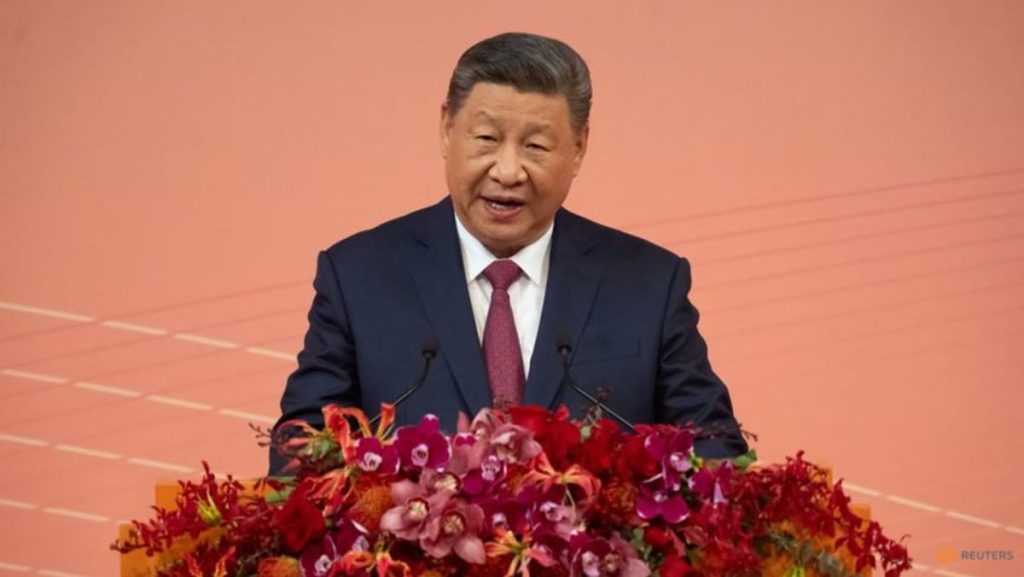Admiral Miao Hua’s downfall, as a member of China’s powerful Central Military Commission, highlights the ongoing and pervasive anti-corruption campaign spearheaded by President Xi Jinping. His inclusion in a growing list of high-ranking officials ensnared in this crackdown, including two former defense ministers, underscores the seriousness of Xi’s commitment to rooting out corruption within the People’s Liberation Army (PLA) and the broader Chinese Communist Party (CCP). This purge within the military, unprecedented in its scope and intensity, signals Xi’s determination to consolidate power and ensure the loyalty of the armed forces, a crucial element in maintaining CCP rule. The removal of powerful figures like Admiral Miao sends a clear message that no one, regardless of rank or position, is immune to scrutiny, reinforcing Xi’s image as a strong and decisive leader.
The timing of Miao’s downfall coincides with Xi Jinping’s renewed pronouncements on the gravity of the corruption threat to the CCP. Xi’s characterization of corruption as the “biggest threat” and his acknowledgment of the “grave and complex” nature of the fight, indicate that this campaign is far from over. Despite significant progress in identifying and punishing corrupt officials, Xi’s remarks suggest a deeper concern about the systemic nature of corruption and the challenges in eradicating the conditions that enable it. This suggests a long-term commitment to anti-corruption efforts, possibly involving further reforms and structural changes within the party and government. It also hints at the potential for future purges, as Xi appears determined to eliminate corruption as a destabilizing factor and a potential challenge to his authority.
The execution of a former official in Inner Mongolia on charges of bribery and misappropriation of public funds illustrates the severe penalties associated with corruption convictions. This execution, along with the high-profile cases involving individuals like Admiral Miao and the former national football coach Li Tie, serves as a stark warning to other officials and individuals who might engage in corrupt practices. The public nature of these punishments reinforces the message that corruption will not be tolerated and that the consequences can be severe, including the ultimate penalty. This approach also aims to deter future corruption by demonstrating the seriousness with which the CCP treats such offenses.
The extension of the anti-corruption drive beyond the military, encompassing sectors like finance and sports, signals the breadth and depth of Xi’s campaign. The targeting of individuals in diverse fields indicates that corruption is perceived as a widespread problem, affecting various aspects of Chinese society. By tackling corruption across different sectors, Xi aims to create a more equitable and just system, enhancing public trust in the government and its institutions. This broad approach also underscores the CCP’s determination to address corruption at all levels, preventing it from undermining economic stability and social harmony.
The ongoing anti-corruption campaign, while showcasing Xi’s commitment to cleaning up the party and the government, also raises concerns about potential political motivations. Critics argue that the campaign may be used to eliminate political rivals and consolidate Xi’s power. The opacity of the investigative process and the lack of transparency in some cases fuel these concerns, leading to speculation about the true nature of the accusations against certain individuals. While acknowledging the genuine need to address corruption, observers also caution against the potential for abuse of power and the selective targeting of individuals based on political considerations.
However, it is undeniable that the anti-corruption drive has yielded significant results in exposing and punishing corrupt officials, deterring future corruption, and reinforcing public confidence in the government’s commitment to addressing this issue. The high-profile cases, the substantial financial recoveries, and the reforms implemented to enhance transparency and accountability all point to a tangible impact. While the long-term effectiveness of the campaign and its potential unintended consequences remain to be seen, it undoubtedly represents a significant effort to tackle a deeply entrenched problem within the Chinese political system and broader society. The challenge for Xi and the CCP will be to sustain this momentum while addressing concerns about due process and ensuring that the campaign is not perceived as a tool for political maneuvering.

